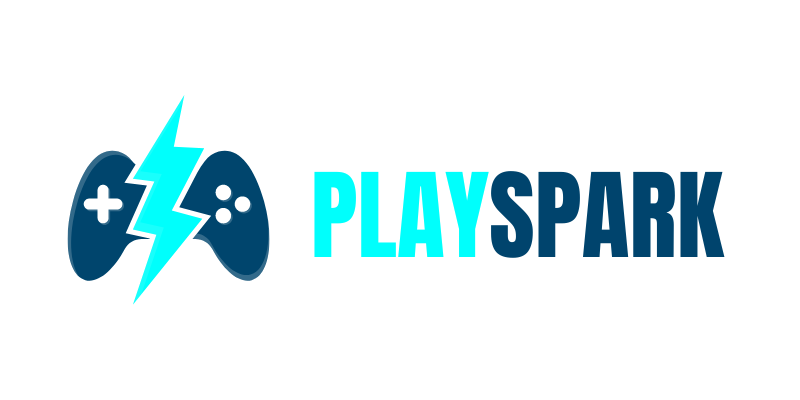Welcome to the twelfth edition of the Locker Room Labs Sports Technology Spotlight. In this series, we sit down with industry partners and experts to discuss the evolving world of sports tech including the incredible innovations being developed in the space. The next professional featured in this series is Luke Santamaria, the Co-Founder and CEO of PlaySpark. We sat down with Luke to discuss his perspective on topics that are trending in the sports betting and technology industry.
With most sportsbooks offering similar betting offerings, how do they retain users on their channels to prevent them from switching?
We are huge proponents of gamification and believe by implementing elements to motivate users to interact with sportsbook content beyond just that of a simple bet, can be quite powerful.
At PlaySpark, we believe that mobile games can also be utilized to not only attract new users and retain them on platform, but also behave as a betting mechanism themselves, through skill based real money gaming. With 90% of Gen Z playing mobile games regularly, this really is one of the key future customer acquisition channels in my opinion.
From a leadership perspective, how do you foster a culture of innovation and continuous learning within your sports technology company team?
As an early stage sports technology company, we are always in a state of learning. Learning from the data around how our end users interact with our product, learning from our clients (sports teams, media publishers) around their needs and continuously researching the trends in the mobile gaming space. It is so crucial that in today’s world you understand your end user – their wants, behaviors and motivations. We are constantly looking into how our target end users (namely Gen Z population) like to consumer sports content and interact. The more we can understand this the better we can create a product that meets them where they live and on their terms.
The other important thing we foster is to give each of our team members a voice in how we build our product. It is vital that innovation comes for the team as a collective, and not just from the top. I believe it is my role to empower this across the team to give them the opportunity to feel like they can truly impact and innovate.
How do you navigate the complexities of regulatory environments when expanding your sports technology services to different regions?
I think that having strong networks and working with companies that are domain experts is so important with this. As an Australian born company currently focusing on the USA market, it is vital we partner with these domain experts to ensure we comply with all regulations.
As a fan engagement company that has the potential to generate and analyse multiple data points from our end user, we must be across data privacy and legal regulatory practices comprehensively. We have set up strategic partnerships with companies who have domain knowledge across these sectors in the USA to help cover this.
Can you discuss any lessons learned or challenges incorporating gamification elements into sports betting and fantasy apps?
Up until this point our clients have been limited to sports teams, brands, and sports media publishers. We have not as yet integrated our mobile gaming technology into any sports betting or fantasy apps.
Having said this, we are in discussions with several sports betting and fantasy companies which has helped us bring to light some of the challenges that may arise.
A key element is that a gamification element must seamlessly fit into the current user journey of the betting or fantasy app. These platforms want the user to feel like it is a part of their normal user experience and not an add on. Given this, our product has been uniquely designed to be white-labeled and pulled into existing app architecture through APIs or SDKs. This allows these platforms to provide an entirely new gaming and gamification experience that level up their value add to clients, builds retention but at the same time does not compromise their normal user experience and remains on brand.
What ethical considerations and practices do you prioritize when integrating new technologies into sportsbook apps, especially regarding user data and privacy?
The most important consideration for us is the collection and management of user data. Because our products can be used to acquire new fans and generate profile data, we also have the ability to generate a number of zero party data points through in-game rewarded surveys. So it is vital for us to ensure we cover the regulatory frameworks surrounding data and privacy, to ensure the end user knows exactly what their data is being used for.
In addition, because our games can be co branded and integrate sponsors into them, there is an advertising element there which must also be considered. We must ensure that users are aware of this advertising and have a choice in how they view this content. If advertisers are trying to garner customer data through our games, it is very important we make this apparent to the consumer and they have the ability to opt in or out from potential marketing campaigns. Because our systems can integrate with those of an existing app database, it is important these integrations facilitate compliance with the appropriate regulatory frameworks.

How has the rise of mobile technology influenced the development and user engagement strategies for sports betting and fantasy apps?
I think an important trend we are seeing is that of users interacting with a second screen whilst they watch a sports event. This is more the case in Gen Z and Gen Alpha, whereby they tend to interact on mobile versus watching a game at an event or even on TV. 77% of Gen Z and millennials prefer to stay home for live sports events. What this means for fan engagement apps is the need to try to capture the attention on mobile, given the rise of more entertainment options making their way onto mobile screens.
Whilst new technology has helped more innovation in the space, it also means these players have to work harder to try to not only engage fans but keep them on their channels. I think AI has a big opportunity for these apps to learn about the user and personalize the experience for them. The apps that take advantage of this and make their experience like it has been designed for that individual user will be the ones that stay ahead of the pack.
Can you share any examples of successful user engagement campaigns or gamification features implemented within sports technology products?
We have had multiple successful integrations for sports teams and media publishers in recent times. We launched a few branded games into the Bluenatics app of the St Louis Blues in the NHL, which has seen very positive results. The Blues were looking to see if arcade games could drive more retention on their app, dwell time increases, and more relevant content to the younger generation. We are in the pilot phase with them on this but are seeing engagement across match days and non match days, with players often playing more than once with dwell times per session of up to four minutes. This was purely organic traffic with no rewards associated with the gameplay, which is very positive. We see strong potential for what we can do to assist sports technology platforms boost their user acquisition and retention through creating their own branded game communities.
Can you share your perspective on the current trends and innovations in sports technology that you find most exciting?
There are so many exciting new sports tech companies popping up across multiple domains of sports tech right now. For me the things that excite me are those that make the fan experience better. For the longest time, fans were essentially passive consumers of sport. There is a trend happening now towards making fans more active participants and being rewarded for this. There is a great company in the UK called FanHub that rewards fans for their behaviors as fans, and allows them to own these behaviors and achievements using web3 technology. I think making fans active consumers and giving them multiple touch-points to interact with a team, player or event is the future. Sitting on a couch for four hours and watching your team win or lose may still exist for some, but the next generation of fan is just not doing this.
I would like to see more innovation around how to use digital experiences to funnel young kids into becoming sports participants and then fans. There is strong data to show that if a kid is an active participant in a sport, then they are much more likely to become a fan of a team and long time supporter. This is something we are looking further to explore by using gamification to promote excitement and interest in the physical world of sports participation and fandom.
From your experience, what role do you think emerging technologies like AI and blockchain will play in shaping the future of sports betting and fantasy apps?
I think the most glaring opportunity for AI is the ability to personalize the betting experience for a fan. Personalized betting feeds, bet recommendations based on favorite sports or past betting behaviors and other personalized mechanics through AI all have the potential to make the user experience better and more rewarding.
In regards to blockchain, I think using it to allow fans to own their own data is an interesting one. Having control over this and being able to monetize your data through being rewarded for consuming advertisements is something I think will happen at some point.
About Luke Santamaria
Luke is the Co-Founder and CEO of PlaySpark, a self service white-label game creator platform that generates gamification content. Luke is looking to change the world of consumer engagement across a number of verticals with innovative gamification technology. He wants to disrupt the fields of modern marketing, advertising, and consumer engagement by implementing fun interactions that reward consumers for their attention. At PlaySpark, they help sports properties including teams, leagues, and media sites increase the acquisition and retention of their audience through gamified rewards solutions. Their aim is to improve consumer engagement, retention and drive new revenue streams for businesses across multiple industries by providing companies with custom plug-and-play tools that engage users on their own sites; including arcade games, trivia, predictor, polls, and more.
About Locker Room Labs
Locker Room Labs is a US-based and software engineer-owned development team specializing in sports, betting, fantasy, and iGaming. From UX Design and MVP Development to Custom App Development and Staff Augmentation, Locker Room Labs is tailored to bring sports software to life. A testament to their innovation is “The Playbook,” a proprietary sports platform-as-a-service that accelerates development time to market and curtails custom software build costs for clients. To reach Locker Room Labs, you can visit our website here.




